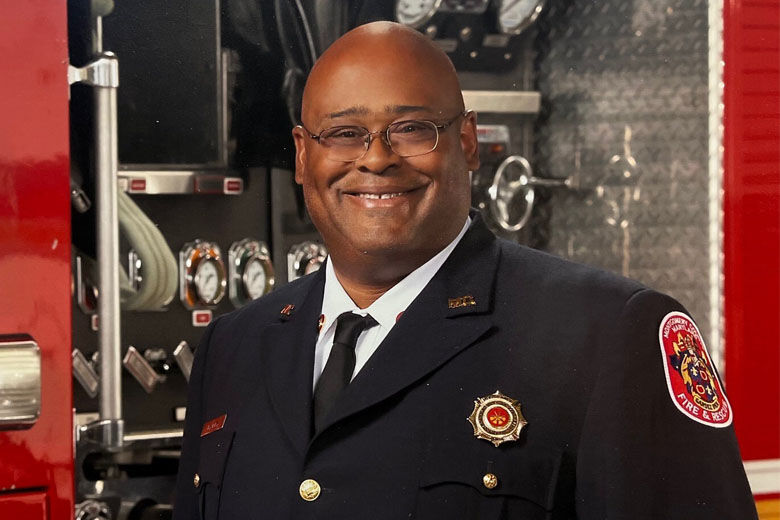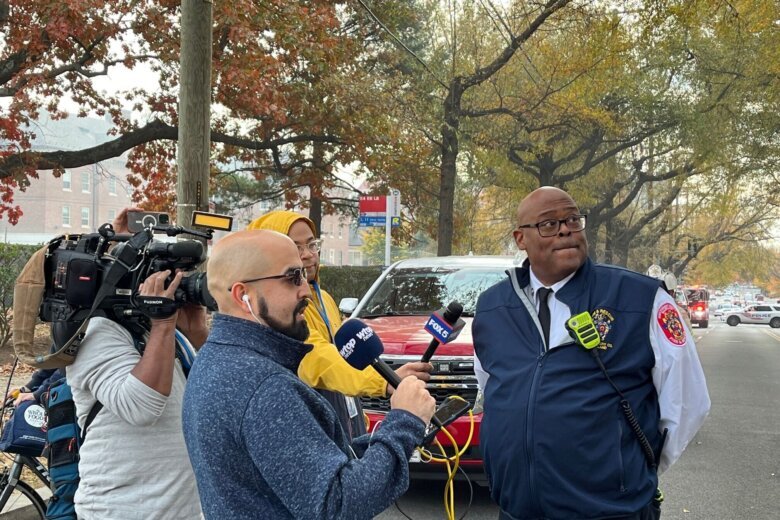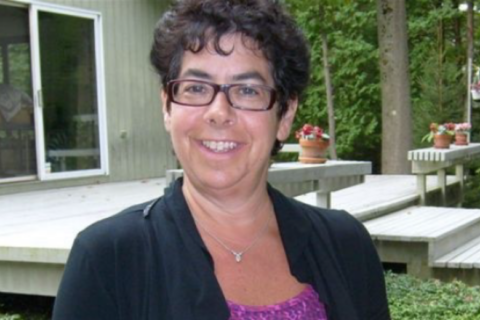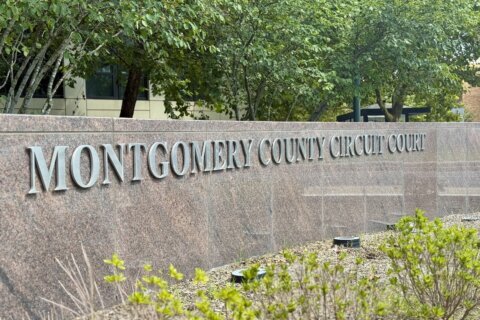
An almost 34-year veteran of Montgomery County Fire and EMS has been tapped to become the county’s next fire chief.
Charles Bailey is currently the department’s operations chief, but if his nomination by Montgomery County Executive Marc Elrich is confirmed by the county council, he’ll lead one of the area’s largest Fire and EMS teams.
“I think the excitement is going to come. I think right now, I’m still adjusting to the gravity of the importance of it,” Bailey told WTOP.
Bailey said it is not lost on him that his job will be to make sure the more than 1.1 million people who call Montgomery County home and the many people traveling through have the help they need, in times of need.
“I’m poised to be in a place here, where my primary job, it’s not just service to the people who live here, but service of the organization,” Bailey said.
Bailey is a Montgomery County native — he was born and raised in Bethesda. For college, he didn’t stray far, only moving to College Park, Maryland.
“There has been no time in my life where I wasn’t in some way connected, either living in Montgomery County or working here,” Bailey said.
He said taking with the lead role, he looks forward to working with all the agencies in the county to help the Fire and EMS service grow and evolve.
“There’s this opportunity to work with everybody,” he said.
He said among the challenges will be the environment for firefighters as it becomes more complex, especially when it comes to issues that arise with the complexities of buildings in the growing county.
He also said there needs to be a more focused lens on the possibility that as the number of calls increase, resources won’t be able to keep up.

“We think that we can respond to that in a couple of different ways. We can build more fire stations and put more ambulances in service, and do things that way. Or maybe we get into these neighborhoods, and we start to understand them at their core and start to identify some of these precursors for these sorts of chronic issues, and work with HHS, Health and Human Services, and others to intervene on the front end,” he said.
He said getting into communities where there seems to be a tie between medical challenges for residents and underlying social issues is important. Once in the community, educating people about medical conditions and what to expect from them will lead to better outcomes.
“If we can get into these neighborhoods, into specific groups, in culturally competent ways, and they say, ‘Hey, this is what a stroke looks like in the textbook. And this is how you may experience it in your life,’ we may be able to drop that interval from when the symptoms first appear until someone reaches out and calls 911. If we can shave minutes off of that, we drastically improve outcomes for people at relatively low cost, without adding to the workforce or adding ambulances or capital improvements,” he said.
He also said educating the community about the importance of calling them about fires quickly is also important.
He cited a case recently in which people ignored fire alarms at an apartment complex, and by the time officials were called, a serious fire had broken out.









